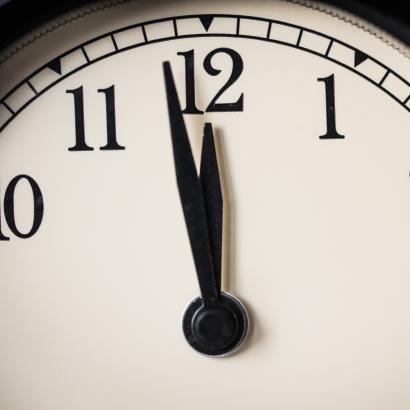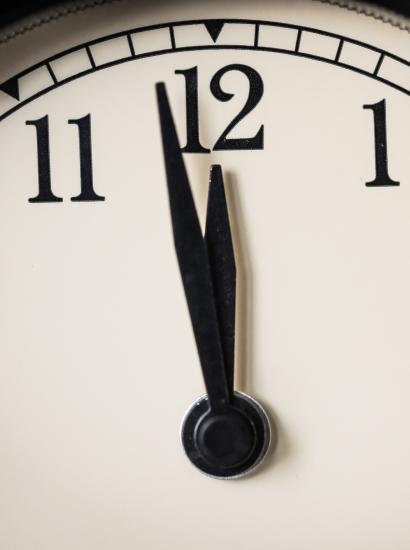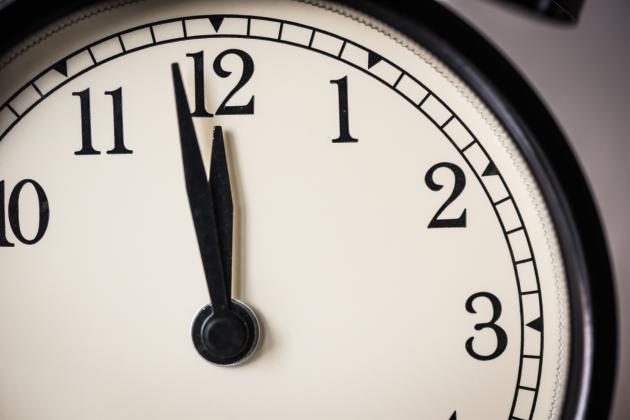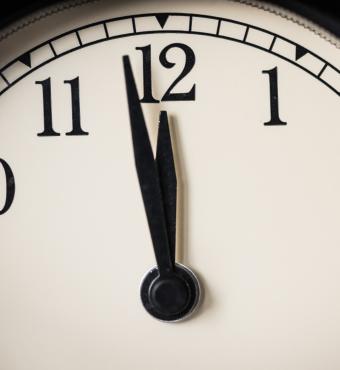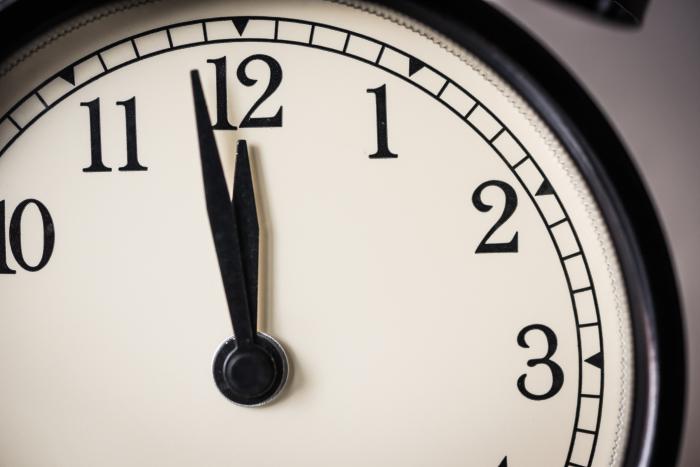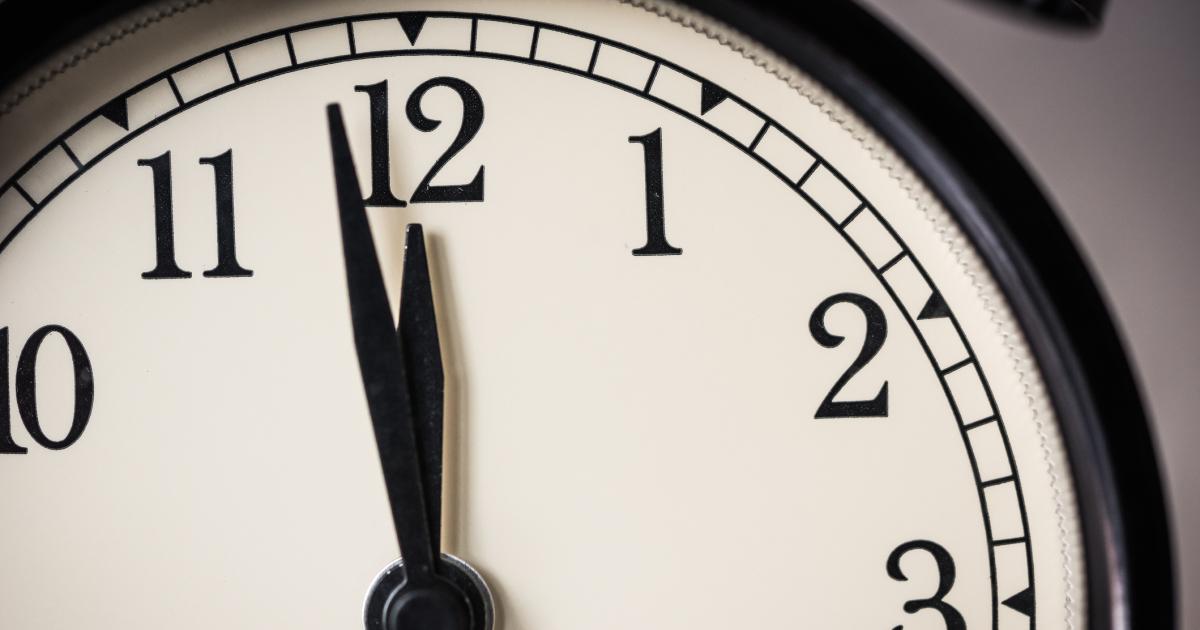- Economics
Many of us take so much for granted nowadays, from smartphones to good food to relatively cheap transportation to health care. So I thought it would be a good idea to report an imaginary conversation I would have if my brother, Paul, who committed suicide in July 1970 at age twenty-two, somehow showed up today at my home in Pacific Grove, California, and we talked about what I have and what daily life is like. Imagine he knows nothing about what happened between 1970 and 2023.
Here goes.
David: It’s so good to see you, Paul. I’ve missed you so much since that tragic day.
Paul: Nice to see you too, Henry. (His pet name for me—I don’t remember why—was Henry.)
David: I was talking to your friend Gary in Winnipeg last week. He misses you too.
Paul: How long did you speak?
David: About half an hour.
Paul: Wow! That phone call must have been expensive. When you called me from California that July, the bill was $1 for three minutes. Half an hour! That must have set you back.
David: Not really. With the phone plan I have, it cost me nothing. I pay a monthly amount for my phone and get pretty much unlimited phone calls within the United States and Canada.
Paul: Incidentally, where is your phone? I don’t see it.
David: It’s that little thing in the corner. But we don’t use it much. This is the one I use (showing Paul my out-of-date iPhone 8.)
Paul: Do you have to stay inside to use it?
David: No. In fact, I catch up on a lot of phone calls when I’m on my daily walk.
David (changing the subject): I remember that one of your favorite singers in the 1960s was Donovan. Do you want to listen to some Donovan?
Paul: Sure. Where’s your stereo?
David: It’s in the attic. I haven’t used it in about twenty years. My music is now on this iPhone.
Paul: How is that possible?
David: I don’t know. It’s something that neither of us had heard of in 1970: software. That, combined with another thing we hadn’t heard of: Moore’s Law. Anyway, some really smart people who work at a company called Apple figured out how to put thousands of songs in this little phone. They aren’t even actually in the phone. They’re in something called “the cloud.” It’s not a real cloud, but I can link to it as if it’s a cloud floating overhead. And you can access the songs quickly by touching a few things (we call it “clicking”) and finding the songs you want. Or you can ask a fictional person named “Siri” who has “learned” to recognize your voice.
Paul: This seems like science fiction.
David: It does, doesn’t it? Remember those Dick Tracy cartoons in the 1960s where he talked to people on a wristwatch? We actually have that now.
We listen to Donovan together for a few minutes.
Paul: I just realized that we’re less than four hundred miles from Disneyland. I remember when we were young and watched Disney on Sunday night. You always wanted it to be either Frontierland or Adventureland, not Fantasyland or Tomorrowland. Have you ever gone to Disneyland?
David: Yes. Rena and I have taken our daughter there three times and Karen and I did a father/daughter trip there twice. It’s interesting that you remember my preferences on Disney. When we watched it on those cold winter nights in the 1960s, it all seemed to me like Fantasyland because the idea that I would ever go there seemed like a fantasy.
Paul: While we’re talking about where you’ve been, have you ever been to Europe? Dad made it there in 1965 on that French teachers’ tour. Mum never made it to Europe.
David: Yes, I have.
Paul: That must have been a fun trip.
David: It’s actually multiple trips. Britain, three times; France, once; Spain once; Italy, once; Germany and the Czech Republic, twice. And believe it or not, for someone with my age, wealth, and education, that’s not very many trips.
Paul: What’s the Czech Republic?
David: Oh, I forgot to tell you. Communism collapsed between about 1989 and 1991. The Czech Republic came about in 1992 in a peaceful revolution: Czechoslovakia split into the Czech Republic and Slovakia.
Paul (shocked): Wait. Communism collapsed? Was there a big war?
David: Nope. The East German government decided, in November 1989, not to shoot people if they tried to cross from East Berlin into West Berlin. And, with that, the Berlin Wall collapsed. Also, a guy named Gorbachev was head of the Soviet Union and he dissolved the Soviet Union in 1991.
Paul: Back to your trips to Europe. How did you afford them?
David: Two things. First, air fares have fallen a lot since you were alive, due to improved technology and due to deregulation of airlines, which allowed much more competition. Second, real incomes have almost doubled since 1967. So when I go to our cottage at Minaki every summer, I spend less than three days of after-tax income on my plane trip.
Paul: Wow! You’re rich!
David: Yes, I am rich. And because I invested so much of my retirement savings in the stock market, I benefited from a huge stock market boom that lasted for about thirty years. But even if I hadn’t, I would be rich. We sent Karen to an expensive private high school here called Robert Louis Stevenson. Yup, it’s named after the novelist. She came home from grade nine one day and said, “Dad, are we poor?” I said, “No, honey, we’re rich. And if our wealth were only one-third of what it is [it was just shy of $1 million at the time, including our retirement assets and the equity in your house], we would still be rich.” The reason was all the things we had even then, things like what I’ve been telling you about, Paul. I asked her why she thought we might be poor, and she pointed to the BMWs and Mercedeses that she saw kids at school driving. I explained that we were rich and they were very rich.
Paul: All this talk about wealth is making me hungry. Remember how we started having steak about once a month in the 1960s after Dad got that raise? Could we go out for steak?
David: Yes, we could, and that’s a fine suggestion. I’ve learned, by the way, to order it medium rare, not well done the way Mum made it. But there are lots of other foods we could have. There are some great Mexican restaurants here. And some great Thai restaurants.
Paul: I’ve never had either of those. Thai sounds more exotic.
David: It is. Let’s do Thai.
At the Thai restaurant, I see the doctor who operated on my wife, Rena, when she had an aggressive form of breast cancer in September 1986. I introduce him to Paul. That gets us talking.
Paul: Did Rena have cobalt treatments after her surgery, the way Mum did? [Our mother had a radical mastectomy for breast cancer in October 1966, followed by cobalt treatments. Her cancer came back, and she died in December 1969, a factor, I believe, in Paul’s suicide seven months later.]
David: No. Fortunately, cancer treatments have improved a lot. Rena had a few weeks of radiation treatment and many months of chemotherapy.
Paul: Wow! That does sound like an improvement. What else has changed in the medical world?
David: There are so many procedures now that deal with various diseases that can kill you. There are many treatments for cancer. Doctors can now take a kidney from a donor or a cadaver and use it to replace a failing kidney in a patient. About five years ago, a friend of mine got a good heart from a donor and is still alive. Polio, which Dad had in 1943 and April [our sister] had in 1952, is virtually gone. And the procedures for sicknesses and injuries that are unlikely to kill you are much improved. About fifteen years ago, the wife of one of my best friends had a bicycling accident and broke her arm. She’s a dentist, and missing work would cause her to lose a lot of income. But the technology had improved so that she got a special fix (I can’t remember the details) that got her back to work a few weeks earlier than otherwise.
Health care has improved in another way too, Paul. Remember how depressed you would get? Back then, we had hardly heard of therapy. To us, therapy was something you got after your broken leg had healed. But since then, the kind of therapy where you sit and talk to a professional about your problems has boomed. Also, there are various antidepressants that didn’t even exist when you were alive. It’s quite conceivable that therapy would have worked for you and that if those antidepressants had existed, one or more of them would have worked for you. If so, you might be alive today.
Paul: Maybe, but I needed friends. I had only one friend, Gary. I needed to find people who had my interests, and I couldn’t find anyone else besides Gary.
David: I haven’t mentioned something else that might have helped you and is totally free. It’s called the Internet. It’s hard to describe, but imagine that you could turn on a machine in the morning and search for various groups of people who have interests similar to yours. I was on a left-wing talk show about fifteen years ago on which the host claimed that the Internet was bad. I defended the Internet and told him that I had a brother who was different from most people and not mainly in bad ways—
Paul: (sarcastically): Gee, thanks.
David: —and that although I could never prove it, my gut feel was that if the Internet had been around in the 1960s, you would have found a number of friends, would have been less isolated, and might be alive today.
Paul: I’m not feeling comfortable. Is there anything else you can do on the Internet besides finding unusual people?
David: Oh, yes. If I remember correctly, Gary got you interested in the poems of Leonard Cohen. You had limited funds. Let’s say you wanted to read one of his poems. You could go on the Internet and find a Cohen poem, do what we call “download” it, and print it out. You could do all of that in a minute. You would need a computer and a printer, but those aren’t expensive and you would have them. I realize that you wouldn’t have had them then. No one did. But if you could have stuck it out for a few decades—I’m not saying that would have been easy—you would have had them.
Paul: I remember that in 1967 you read Ayn Rand and became a libertarian. You were kind of hard-hearted for a while, which isn’t how you were before you read her. You don’t seem that way now. What happened? Are you still a libertarian?
David: Thanks. I read more and thought more. I took the good ideas she had and rejected the rest, which is what I do with everything I read. I’m still a libertarian but a much more informed and humane one.
Paul: I’m curious. You really didn’t like Prime Minister Trudeau back then. Did your attitude to him change?
David: No. He was the prime minister who, more than any other single person, brought big government to Canada. He was prime minister from 1968 to 1984, with only a nine-month gap in 1979–80. That gave him a lot of time to grow the government.
Paul: So you must be glad that Trudeau is no longer in power.
David: Well, it’s complicated.
Paul: Wow, with all this progress, people must be really happy and must appreciate the system that gave it to them.
David: Oh, Paul, I wish. That’s a whole other story. How long do you have?








